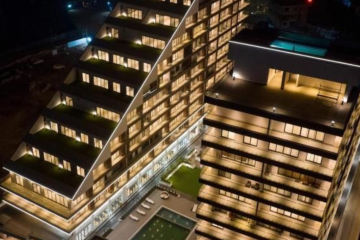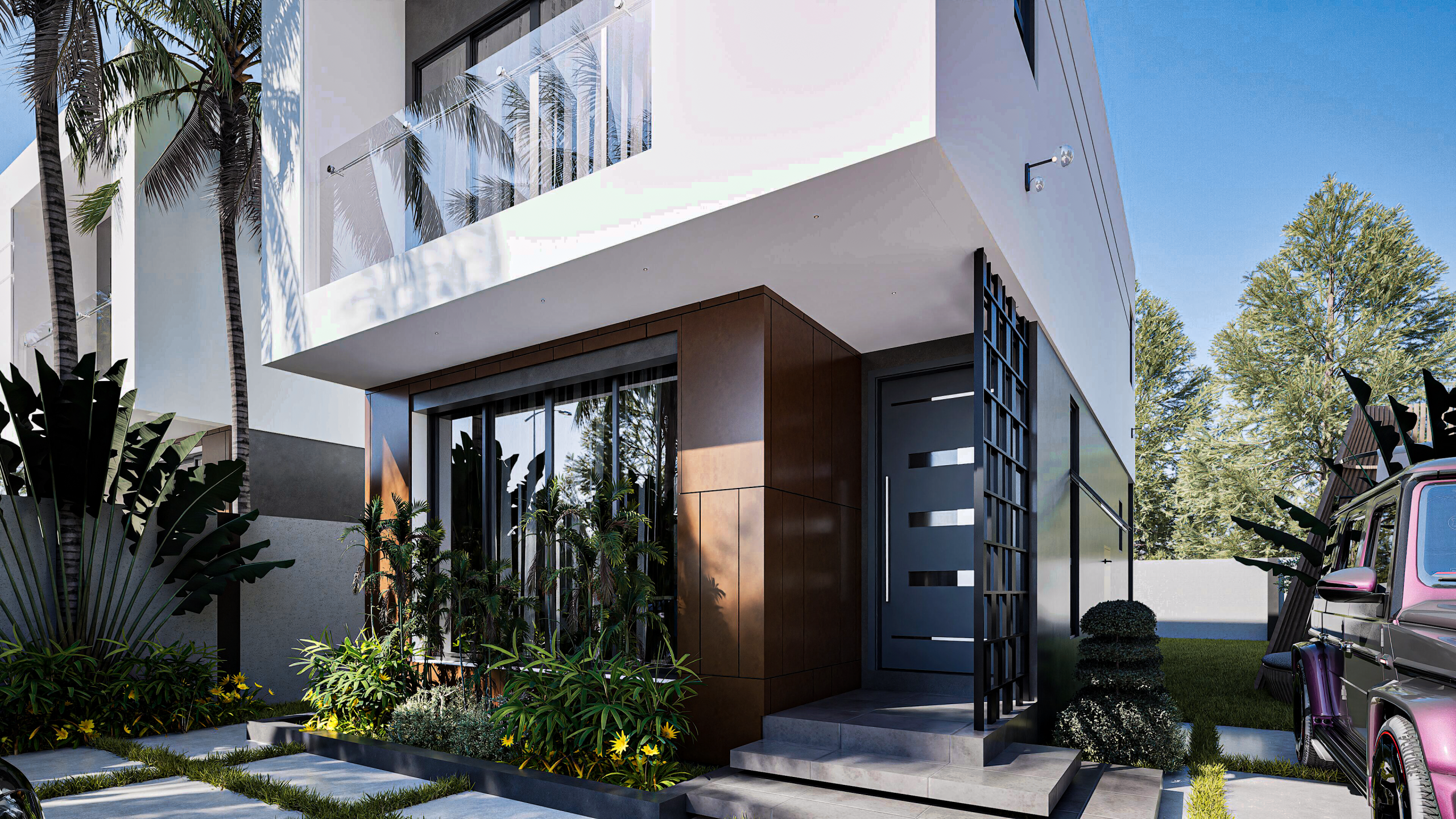
Understanding the Requirements for a Mortgage in Ghana
Understanding the requirements for a mortgage in Ghana is essential for anyone looking to finance their home purchase. Mortgages are not the most popular real estate financing methods in Ghana with about 15-20% of real estate transactions that use mortgages. The rest make between 2-8 part payments to fully pay for a home.
One of the reasons why mortgages are not so popular is that the process involves multiple steps and requires that you provide various documents to the lender. If you want to use a mortgage in Ghana to finance your real estate transactions, then here’s a breakdown of what you need to know. Especially for people who are seeking how to apply for a mortgage in Ghana
READ ALSO: The Airbnb Market in Ghana, Nigeria, and Liberia. Which is best?
1. Income to Debt Ratio
One of the primary factors lenders consider is your ability to repay the loan, which is reflected in your income-to-debt ratio. Lenders in Ghana generally require that this ratio be less than 50 per cent.
This means your monthly debt obligations, including the mortgage, should not exceed half of your income. For example, if you earn GHS 100,000 per month, your monthly debt repayments, including loans and credit cards, should be less than GHS 50,000.
You will be required to provide details of your monthly expenses and loans that you are currently paying back.
2. Letter of Employment
If you are employed, you will need to provide a letter of employment from your employer. This document will verify your position, how long you’ve been with the company, and your monthly or annual salary.
If you happen to work for a reputable company in a managerial position for over a decade, you increase your chances of getting approved for a mortgage. Lenders use this information to ensure you have a stable income that can support the monthly mortgage payments over the life of the loan.
3. Bank Statements
Bank statements are another critical component of your mortgage application. Lenders usually request 3 years of bank statements to assess your financial habits. These statements give the lender insight into how much money you have coming in, how much you are spending, and whether you can manage the additional expense of a mortgage without undue financial stress.
4. Requirements for Self-Employed Individuals
For self-employed individuals, the mortgage application process is a bit more complex. You will need to provide at least three years of financial statements, including profit and loss accounts, balance sheets, and tax returns. These documents help the lender evaluate the financial health of your business and ensure that you have a consistent income stream that can support monthly mortgage payments.
You will also need to submit your Forms 3 & 4, business certificates, and the sole proprietorship form A if your business falls within that category.
5. Proof of Identity
In addition to proving your income, you will also need to provide proof of identity. Acceptable forms of identification include a passport, driver’s license, or national identification card. This is a standard requirement in the application process, and it ensures that the lender is dealing with the correct person.
You will also need to provide other relevant information like next of kin, spouse, and more.
6. Property Valuation
Another requirement for a mortgage in Ghana is a property valuation. This is a professional assessment of the property’s worth, and it helps the lender ensure that the amount you are borrowing is appropriate for the value of the home.
The lender may arrange the valuation themselves or ask you to hire an appraiser. This step protects the lender by confirming that their investment in the property is secure. A good valuation should give you the best mortgage in Ghana.
7. Deposit Requirement
A deposit or down payment is typically required when applying for a mortgage. The down payment usually ranges from 10 to 30 per cent of the property’s value. The more you can put down upfront, the less you will need to borrow, which can improve your chances of getting the mortgage approved and lower your monthly payments.
With the high mortgage interest rates in Ghana, it is advisable to pay as much upfront as you can, as this will lower the interest that you will have to pay.
8. Credit History
Your credit history also plays a significant role in the mortgage approval process. In Ghana, the Credit Reference Bureau provides lenders with information about your borrowing history, including whether you have defaulted on loans in the past.
A strong credit history makes you more attractive to lenders and can lead to better interest rates, while a poor credit score might result in a higher interest rate or even denial of the mortgage.
9. Age Restrictions
Age restrictions are also something to keep in mind when applying for a mortgage in Ghana. Most lenders require that applicants be between the ages of 21 and 60. This ensures that the loan is repaid before the applicant reaches retirement age. The closer you are to retirement, the more challenging it might be to get a mortgage. The ideal age for most lenders is around 35-50 years.
READ ALSO: How to Regularize Your Land In Ghana
Additional Tips for a Successful Mortgage Application
Finally, several tips can help improve your chances of securing a mortgage in Ghana.
First, ensure that your finances are in order before applying. This means reducing existing debts, saving regularly, and maintaining a good credit history. If you plan to go for a mortgage, then these metrics should be very important to you.
Second, consult with mortgage advisors or financial planners to get advice on the best mortgage product for your specific needs. Different banks in Ghana have different packages, which a real estate agent can guide you through. Our research can help us align you with the best bank for your mortgage needs.
Lastly, take the time to shop around and compare mortgage options from different lenders. Interest rates, fees, and repayment terms can vary, so it’s important to find the best deal for your situation.
Getting a mortgage in Ghana involves preparing a range of documents and ensuring your financial health is solid. By understanding the requirements and taking the necessary steps to meet them, you can position yourself for a successful mortgage application and move closer to owning your dream home.
Mortgages are Expensive in Ghana
Mortgage rates in Ghana are high, ranging between 25%-30% per annum. Mortgages in Ghana have high interest rates due to several factors. These include high inflation, which reduces the value of money over time, and a lack of long-term funding sources, forcing banks to rely on short-term deposits. There is also a high risk of default, limited competition in the mortgage market, and weak credit infrastructure, making it harder for lenders to assess borrower risk.
Additionally, the underdeveloped capital markets, macroeconomic instability, and high operational costs for banks contribute to higher rates. All these factors combine to keep mortgage interest rates elevated. So make sure you have a solid repayment plan before you engage in a mortgage.









